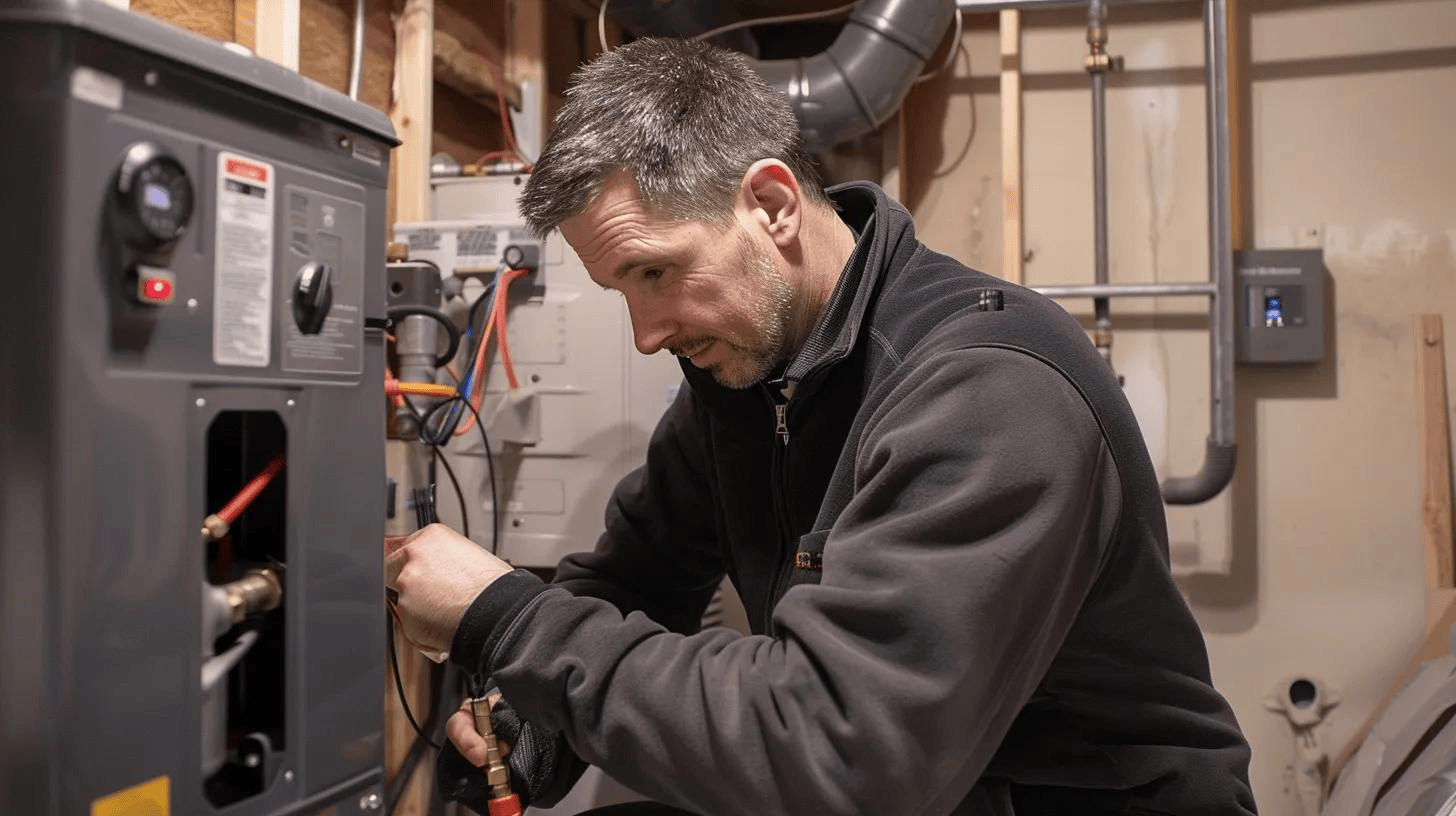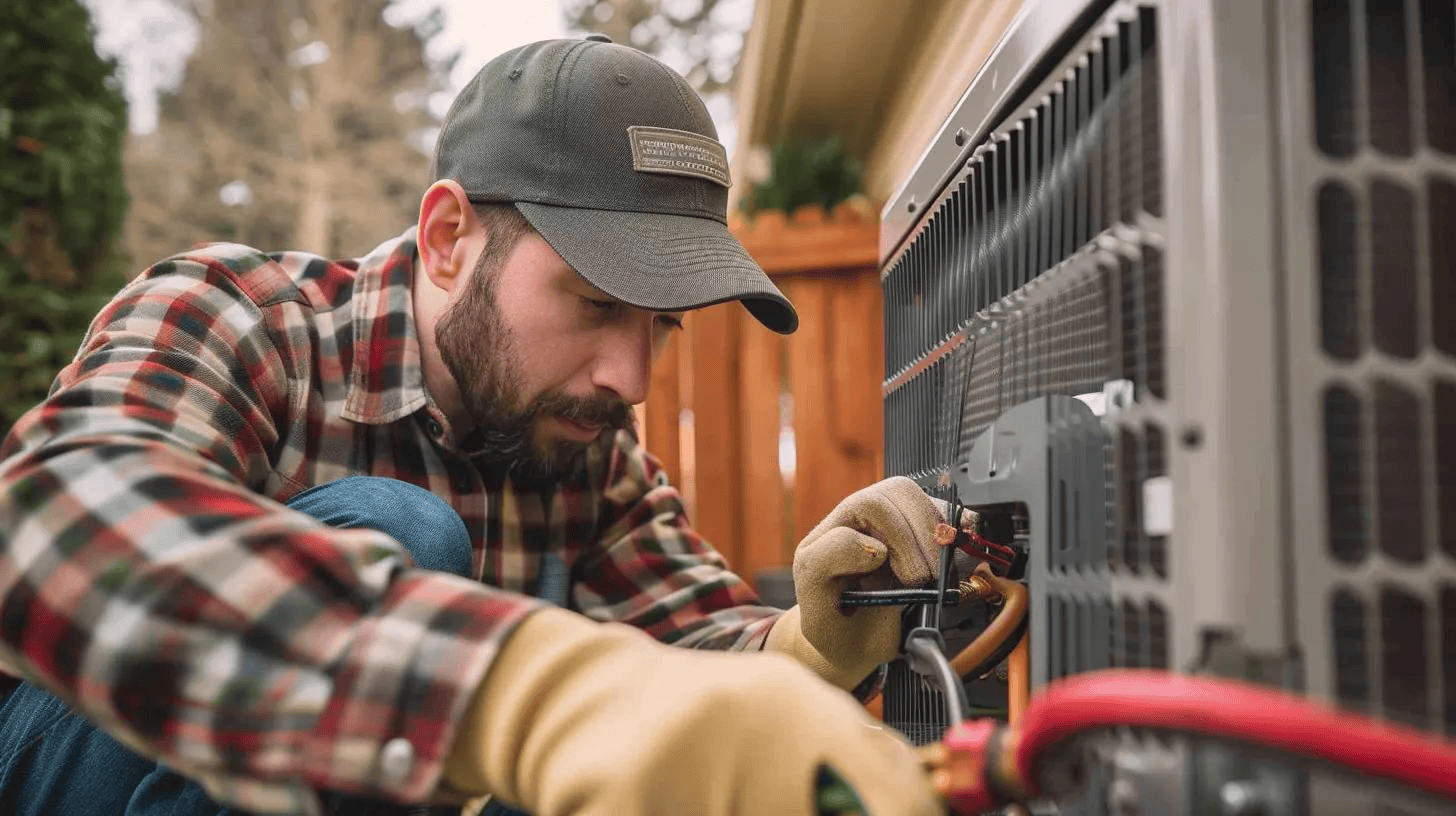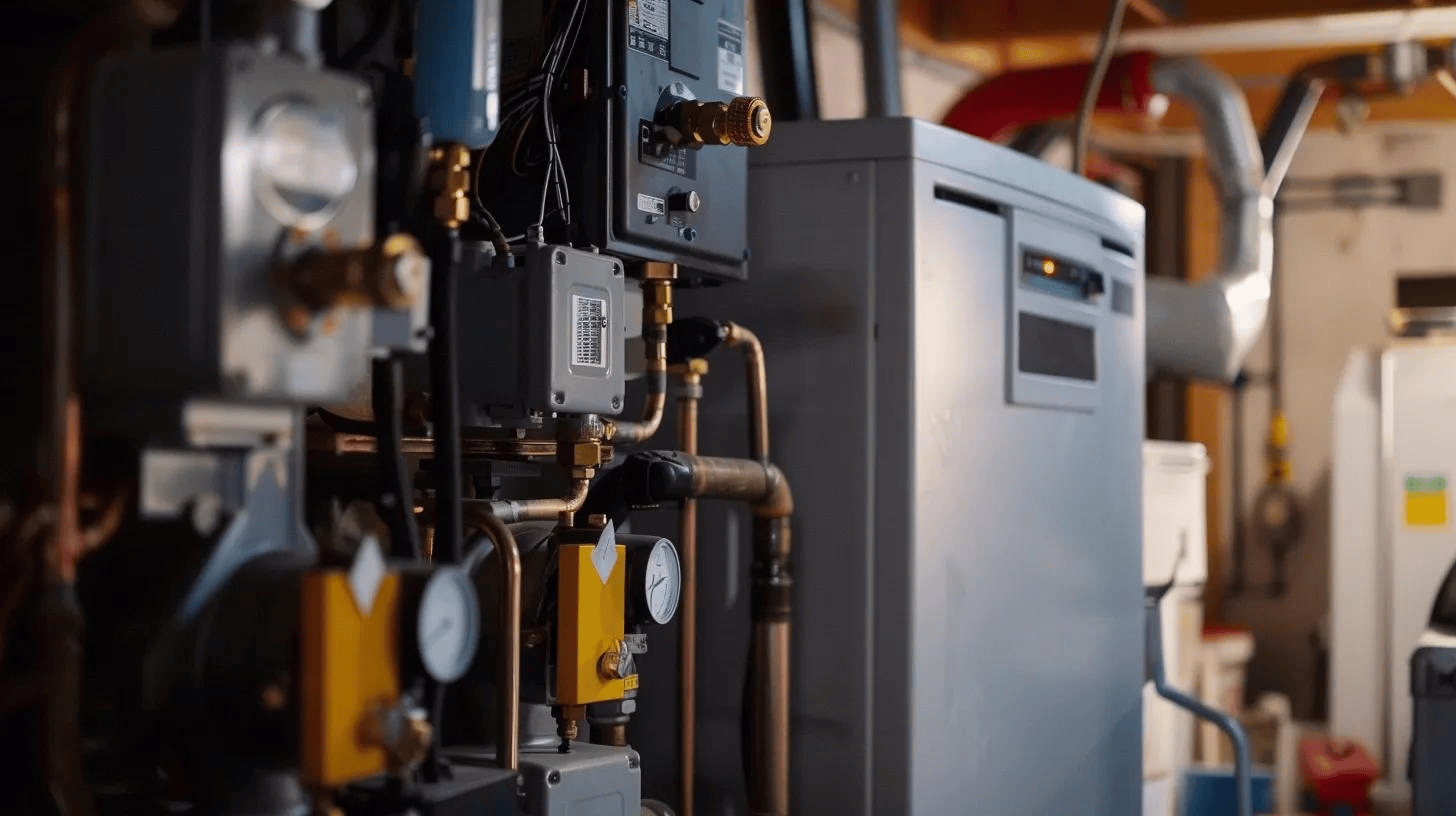AC Freezing Up in Lewiston? Understand Why and What to Do
Discovering your air conditioner has frozen over is a frustrating experience, especially when the summer heat hits here in Lewiston, ID. Instead of cool, refreshing air, you might find ice coating the indoor coil or even the outdoor unit. A frozen AC isn't just inconvenient; it's a clear sign of an underlying problem that needs attention. Ignoring it can lead to more severe damage and costly repairs down the line. Understanding why your air conditioner freezes up is the first step to getting your home comfortable again and preventing future issues.
Air conditioners work by absorbing heat from inside your home and transferring it outside. This process involves circulating refrigerant through a system of coils and lines. The indoor coil, known as the evaporator coil, gets very cold as it absorbs heat from the air passing over it. This cold air is then blown into your home. Moisture in the air naturally condenses on the cold evaporator coil, much like dew forms on a cold glass. Normally, this condensate drips into a drain pan and flows away through the condensate line. However, if the evaporator coil gets too cold for any reason, the moisture condensing on it can freeze instead of dripping, leading to ice buildup. This ice then blocks airflow, making the problem worse and eventually preventing the system from cooling effectively.
Common Reasons Your AC Might Be Freezing
Several factors can cause your AC system to reach temperatures low enough to freeze moisture on the evaporator coil. Identifying the specific cause requires a thorough inspection, but these are the most frequent culprits experienced by homeowners in areas like Lewiston.
1. Restricted Airflow
Poor airflow across the evaporator coil is one of the most common reasons for freezing. The coil needs warm air from your home to absorb heat effectively and stay above freezing temperatures. If not enough warm air reaches the coil, its surface temperature can drop too low, causing condensation to freeze.
- Dirty Air Filter: This is the number one offender. A clogged air filter severely restricts the volume of air pulled into the HVAC system. If air can't pass through the filter easily, less air reaches the evaporator coil. This limited airflow means less heat is absorbed by the refrigerant, causing the coil to get excessively cold. Regularly checking and changing your air filter is a simple maintenance task that can prevent many issues, including freezing.
- Blocked Vents or Return Grilles: Just like a dirty filter, blocked supply vents (where cool air comes out) or return grilles (where warm air enters the system) impede proper airflow. Ensure furniture, curtains, or anything else isn't obstructing these crucial points in your home's ductwork system.
- Closed Dampers: If your ductwork system has dampers that control airflow to different zones, ensure they are open and set correctly.
- Faulty Blower Fan: The blower fan is responsible for pushing air through the system. If it's malfunctioning, running slowly, or not running at all, airflow will be insufficient, leading to potential freezing.
2. Low Refrigerant Levels
Refrigerant is the substance that absorbs and releases heat, making cooling possible. The refrigerant cycle is designed to maintain specific pressure and temperature levels. If your system is low on refrigerant, the pressure inside the evaporator coil drops significantly. This low pressure causes the refrigerant within the coil to become excessively cold, well below freezing, leading to ice formation. Low refrigerant is almost always a sign of a leak somewhere in the sealed system. Unlike a car's gasoline, refrigerant is not "used up" and should not need regular refilling. If your system is low, there's a leak that needs to be found and repaired by a professional before adding more refrigerant. AC Repair for refrigerant leaks is crucial to prevent recurring issues and damage.
3. Clogged Condensate Drain Line
While a clogged drain line doesn't directly cause the coil to get too cold, it causes water to back up around the indoor unit. If the drain pan overflows, water can pool at the base of the evaporator coil. This standing water is then exposed to the extremely cold coil surface and can freeze, contributing to the ice buildup. A clogged drain line is also a common cause of water damage around your furnace or air handler.
4. Other Potential Issues
Less common but still possible causes include:
- Dirty Evaporator Coil: Over time, dirt and grime can accumulate on the evaporator coil itself, even with a clean filter. This acts as an insulator, preventing the coil from absorbing heat efficiently and restricting airflow, potentially leading to freezing.
- Mechanical Problems: Issues with system components like the expansion valve (which regulates refrigerant flow) or a faulty thermostat that causes the unit to run constantly without cycling properly can also contribute to freezing.
Signs Your AC Unit is Freezing Up
How can you tell if your air conditioner is freezing? Look for these warning signs:
- Visible Ice: This is the most obvious sign. You might see ice on the copper lines connected to your outdoor unit, or on the evaporator coil inside your furnace or air handler.
- Warm Air from Vents: Despite the system running, the air coming from your vents isn't cold. This is because the ice is blocking airflow and the system isn't effectively cooling.
- System Runs Constantly: The thermostat calls for cooling, but the system can't reach the desired temperature due to the blockage, causing it to run continuously.
- Higher Energy Bills: A struggling, inefficient system will consume more energy.
- Water Puddles: After you turn the system off and the ice begins to melt, you might notice water pooling around the indoor unit.
Immediate Steps: What to Do When You Find Ice
If you discover your AC is frozen, here are the crucial immediate steps to take:
- Turn the AC System OFF Immediately: Go to your thermostat and switch the system from "COOL" to "OFF". Do not just adjust the temperature up; make sure the cooling function is completely disabled. Continuing to run a frozen system can cause severe, permanent damage, especially to the compressor.
- Turn the Fan to "ON": While the cooling is off, set your thermostat's fan setting from "AUTO" to "ON". This will circulate air from your home across the frozen coil, helping it to thaw faster.
- Check and Change Your Air Filter: If you haven't changed your filter recently, now is the time. A dirty filter is a prime suspect. Replacing it will ensure better airflow once the system is running again.
- Inspect Vents and Returns: Walk around your home and make sure all supply vents are open and not blocked. Check return air grilles for obstructions as well.
- Allow Time to Thaw: Depending on the amount of ice, it can take several hours for the coil to thaw completely. You may want to place towels around the indoor unit to catch melting water.
- DO NOT Try to Chip or Melt the Ice Manually: Using sharp objects can damage the delicate fins and coils. Using heat can potentially damage components. Let the fan and natural thawing process do the work.
Why Ignoring a Frozen AC is Risky (and Costly)
A frozen AC is more than just a temporary inconvenience. It's a symptom that indicates a problem requiring professional diagnosis and repair. Continuing to operate a system while it's frozen or repeatedly freezing can lead to significant damage:
- Compressor Damage: The compressor is the heart of your air conditioning system and the most expensive component. Running the unit with ice buildup can cause liquid refrigerant (which should be a gas at that point in the cycle) to enter the compressor. Compressors are designed to pump gas, not liquid, and this can quickly destroy the motor and internal components.
- Water Damage: As the ice thaws, a large amount of water is released. If the drain system can't handle it (perhaps due to a clog that contributed to the problem), it can overflow and cause damage to your walls, ceiling, floor, or furnace/air handler components.
- Reduced Lifespan: Any ongoing issue that causes freezing puts stress on your system's components, shortening its overall lifespan.
When to Call Our Lewiston AC Experts
While changing a filter or clearing a blocked vent are steps you can take, many causes of AC freezing require professional expertise. If:
- The ice returns after you've thawed the system, replaced the filter, and checked for blocked vents.
- You suspect low refrigerant (you hear hissing, notice warm spots, or the issue keeps happening).
- The blower fan isn't working correctly.
- The drain line is clogged, and you're unsure how to safely clear it.
- You simply can't identify the cause or are uncomfortable troubleshooting HVAC equipment.
These are clear indicators that it's time to call in a qualified HVAC technician. Our team specializes in AC Repair throughout the Lewiston, ID area and surrounding communities like Moscow, ID and Lapwai, ID. We have the tools and knowledge to safely diagnose the root cause of the freezing, address issues like refrigerant leaks, clean coils, repair fans, or clear drain lines. We understand the specific needs of systems operating in the local climate.
Preventing Future AC Freezing Issues
Once your AC is repaired, the best way to avoid future freezing problems is through regular maintenance. Annual AC Maintenance tune-ups ensure your system is clean, refrigerant levels are correct, airflow is unimpeded, and all components are working efficiently. A professional technician can spot potential issues before they lead to breakdowns or freezing.
Dealing with a frozen AC unit is never fun, but understanding the causes and knowing when to seek professional help can save you significant headaches and expense. For reliable AC Service and repair in Lewiston, you need a team you can trust.
Customer Testimonials
Our customers love our service and support.










